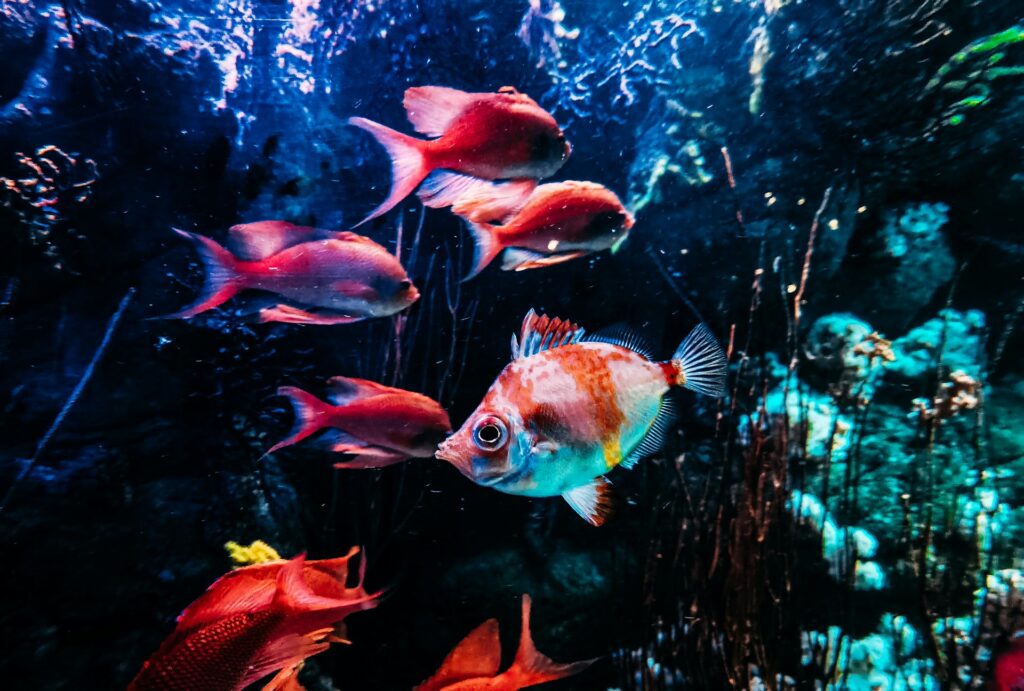How Human Water Usage Impacts Aquatic Ecosystems : The Ripple Effect
By Finlay Gilkinson – 14/05/2025
Water is vital for life, sustaining forests, microorganisms, and aquatic ecosystems like rivers, lakes, and oceans. However, human activities strain these systems. From agriculture to household use, our water consumption disrupts aquatic life. Let’s explore how and what we can do to help.

The Scale of Human Water Use
Humans consume vast amounts of water. Agriculture uses 70% of freshwater, mainly for irrigation, industry takes 20%, and domestic use accounts for 10%. Growing populations increase demand, often exceeding natural replenishment, altering water flow and quality in ecosystems.
1. Reduced Water Flow in Rivers and Streams
Diverting water for irrigation or cities reduces river and stream flow, shrinking habitats for fish and amphibians. Over-extraction from the Colorado River has dried its delta, harming native fish. Low flows also disrupt spawning and food webs, affecting entire ecosystems.
2. Pollution from Agricultural and Industrial Runoff
Water use impacts quality too. Agricultural runoff with fertilizers causes algal blooms, creating oxygen-depleted “dead zones” like in the Gulf of Mexico. Industrial discharges add chemicals and microplastics, harming aquatic life and disrupting reproduction.
3. Habitat Destruction from Infrastructure
Dams and canals built for water management harm ecosystems. Dams block migratory fish like salmon, as seen with China’s Three Gorges Dam. Draining wetlands for agriculture or cities destroys nurseries for species and worsens water quality.
4. Altered Water Temperatures
Human water use changes aquatic temperatures. Power plants release warm water, stressing cold-water fish like trout. Over-pumping groundwater reduces cool stream flows, leaving organisms in warmer, less oxygenated water, further harming ecosystems.
5. Impacts on Coastal and Marine Ecosystems
Freshwater diversions raise estuary salinity, affecting species like oysters and seagrasses, as in Florida’s Everglades. Nutrient pollution causes marine red tides, killing fish. Overused coastal groundwater allows saltwater intrusion, disrupting ecosystems.
What Can We Do?
We can reduce impacts with simple steps:
methods.
Conclusion : How Water usage Impacts Ecosystems
Aquatic ecosystems support diverse life but are threatened by human water use. Sustainable practices can protect rivers, lakes, and oceans. Let’s act to ensure these waters thrive for future generations.
Ready to find the perfect job?
Our team of experts work with an extensive network of employers. Submit your CV to ensure you’re a part of our network of talented candidates and we’ll make you aware of opportunities before they are even posted.
